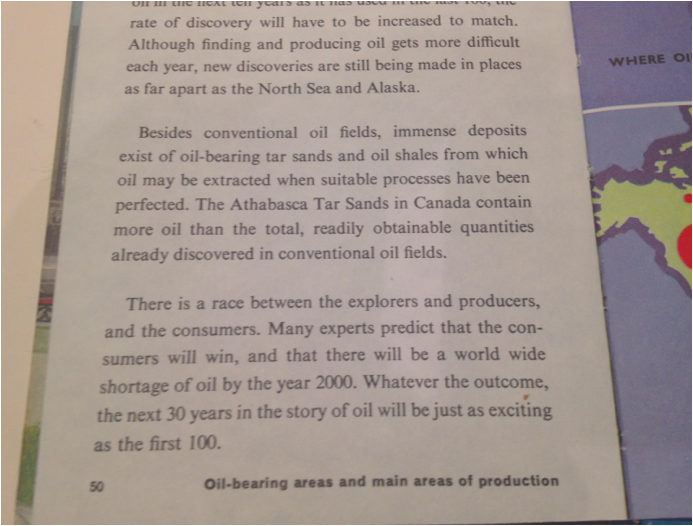Back in 2009 Deutsche Bank predicted that oil would reach $175 by 2016. Yesterday the price stood at $85.68, down 25% in five months. Goldman Sachs say that the price of oil may fall to $80 next year. But the only thing we can say with any precision about the price of oil in the future is that it will go up and down.
Hysteria about Peak Oil has now been replaced with complacency. But while the price of oil will always reflect demand and the supply of alternatives such as gas, the amount of oil that’s left will always depend on its price. If the price is high there’s an incentive to look for more oil and to develop new technologies to extract it.
Perhaps all this highlights a few things about predictions. First, predictions are generally extrapolations of recent past experience or data. Second, predictions ignore feedback loops. Third, predictions are blind to new technologies or inventions. Fourth, predictions they assume constant behaviour (which can be influenced by, among other things, regulation and pricing). Fifth, predictions contain at least one key assumption, which in the case of peak oil might be that we’ll need oil in the distant future.
Finally, there’s Ballard’s law of forecasting, which says that if enough people predict something it won’t happen.


retro project (as you like):
http://hemingwrite.com
That makes my head spin!